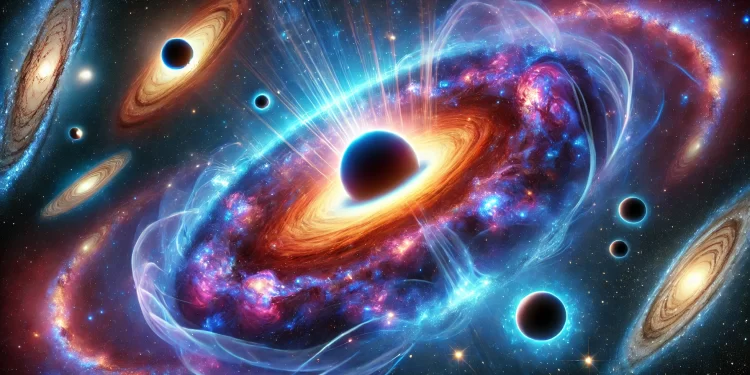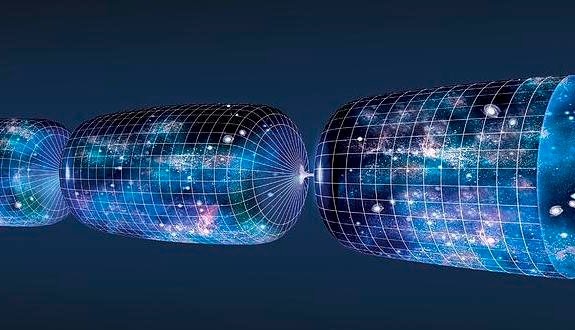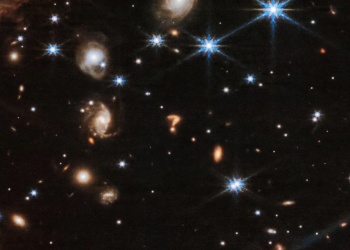This bold theory of bouncing cosmology challenges the standard model of the Big Bang as the universe’s beginning, proposing that the cosmos may cycle between phases of contraction and expansion. If this idea holds true, it could reveal crucial information about two of the most mysterious phenomena in the universe.
The study, recently published in the Journal of Cosmology and Astroparticle Physics, suggests that primordial black holes may have formed during the last phase of contraction, just before the universe began expanding into the state we observe today. These black holes, the researchers propose, could have survived the Big Bang and may now make up a significant portion of the universe’s dark matter. Dark matter, which is estimated to account for 80% of all matter in the universe, remains elusive despite being a key component in explaining how galaxies hold together.
Could Primordial Black Holes Be the Key to Dark Matter?
The bouncing cosmology model suggests the universe did not originate from a singularity, as traditionally thought, but from a contracting phase followed by a rebound. In this scenario, the contraction phase ended with a “bounce” that set the universe on its current expansion path. During this period of high matter density, quantum fluctuations could have created small black holes, which, according to the study’s authors, may still exist today.
If true, this model could offer an explanation for dark matter. The researchers suggest that some of these primordial black holes may have survived and are now dispersed throughout the cosmos, contributing to the unseen matter that astronomers detect through its gravitational effects.
To test this theory, future gravitational wave observatories, such as the Laser Interferometer Space Antenna (LISA) and the Einstein Telescope, might detect gravitational waves produced during the formation of these primordial black holes. According to the study, these gravitational signatures could serve as the “smoking gun” that confirms the existence of black holes from the pre-Big Bang era.
However, it may take over a decade before these facilities are able to provide the data needed to test the theory. If confirmed, this discovery could radically alter our understanding of both the origins of the universe and the nature of dark matter.
What Does This Mean for Cosmology?
This study is significant because it offers a natural way of forming small black holes that could solve the puzzle of dark matter. While previous models relied heavily on the idea of cosmic inflation to explain the universe’s early rapid expansion, the bouncing cosmology model presents an alternative. It shows that a contracting universe could lead to the same observational results as the standard Big Bang theory, but with the added possibility of producing primordial black holes.
As experts have explained, this work provides a natural way of forming small, long-lasting black holes that could explain dark matter in a framework different from the inflationary model.
Other researchers are now investigating how these tiny black holes might behave in relation to stars, potentially providing new avenues for detecting them. If primordial black holes are indeed linked to dark matter, this discovery could usher in a new era in our understanding of the cosmos, shedding light on both the birth of the universe and its mysterious hidden components.
As new technologies come online and our ability to observe the universe expands, we may soon find answers to some of the most profound questions in cosmology—questions that could redefine how we understand space, time, and the origins of everything.











